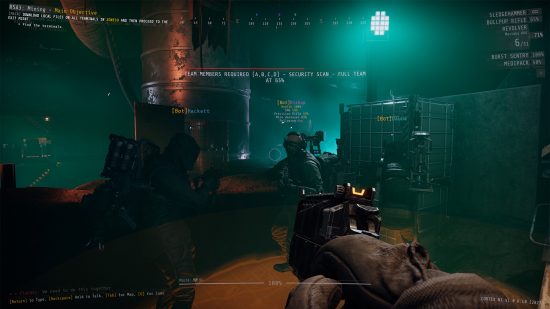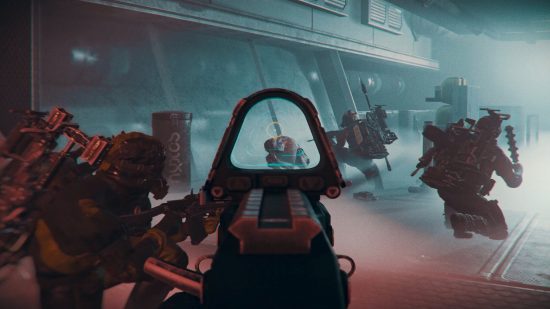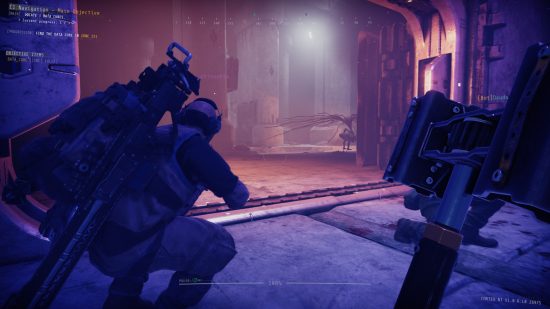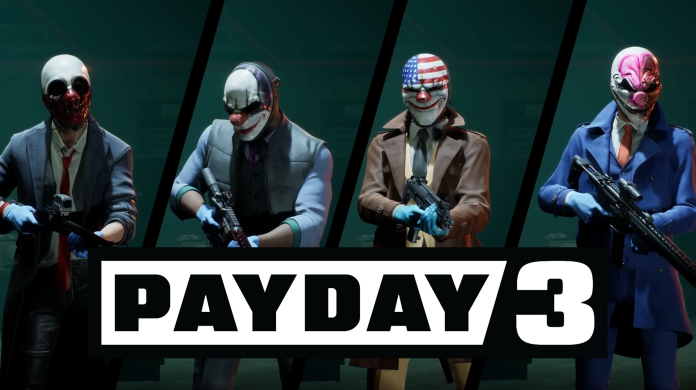As Payday 3 approaches, a rival heist game emerges from GTFO developer 10 Chambers and former Payday 2 leaders Ulf Andersson and Simon Viklund.
Payday 3 is shaping up to be another terrific heist game in the series’ mould, but there’s a new opponent on the horizon – and it’s an inside job. PCGamesN talked with former Payday and Payday 2 developers Ulf Andersson and Simon Viklund at Gamescom 2023 about the next co-op game they’re working on with their new firm, GTFO developer 10 Chambers Collective.
Payday: The Heist and Payday 2 were both developed by Andersson and Viklund, with Andersson serving as main designer and Viklund serving as composer. They’re currently serving as game director and narrative director on a new project that hopes to build on what they accomplished with the Payday series while expanding on areas where the game is inherently constrained.
“I don’t want to s**t on them; I want them to succeed.” For us, it’s more of a prelude to the following game.” After 10 years after the release of Payday 2, Andersson’s views and objectives have shifted. Making the tempo more intriguing is one aspect of this. “Payday builds up and just stays on that high note,” he says, noting that it was difficult to slow down once things got going.



“If you’re starting in stealth [in Payday] and you get discovered, it just stays full-on combat, basically, all the way through until you either fail the heist, or you succeed,” Viklund says. In comparison, 10 Chambers’ GTFO has a considerably more stop-start structure, with spurts of action punctuating the more silent, tense stealth periods.
“It’s an exhausting game to play in that way, but we learned a lot from accomplishing our goals.” So the new game is doing something similar, but in a slightly different way, for a somewhat different demographic.” The emphasis remains on a “hardcore cooperative” experience, but the team hopes to create something that is simpler to get into than the more aggressive GTFO while still “gradually getting you to that point where you’re constantly challenging yourself.”
This unnamed heist game will support “at least four players,” according to Andersson, but the developer also aims to accommodate anyone who wish to play alone. 10 Chambers, on the other hand, avoids the typical class-based arrangement. “It sort of limits your expression or planning.” Rather, the team wishes to provide something more adaptable that does not bind you indefinitely.
“It’s even more difficult when you have to choose a class at the start of the game – you don’t know s**t about it, you don’t know what’s what, and it gets worse with time, these permanent decisions.” You pour your energy into that role, and suddenly it’s practically all s**t for you.” Viklund points out that this extends beyond gameplay to aesthetic character modification.
The new game focuses on “late stage capitalism,” according to Viklund. “We have a bit of that classic corporate structure – it lends itself to that flexibility of ‘who’s the enemy and who’s not?'” says Andersson. He cites techno-thriller films and shows like Black Mirror, raising the question of who you’re working for in any particular circumstance. “We’re going back to the idea of reinventing what a heist can be,” Viklund continues. “You’re a criminal doing criminal things, but then you’re sort of a criminal within that by doing something that your client hasn’t asked you to do, for yourself.”
The game has been in production for around three years, according to the couple, with the concept stretching back much farther, but the completion of GTFO allows the entire team to shift over to concentrate on this new project. They are, however, resolute about not providing any release dates for the time being, emphasising that their self-funding model allows them to wait until the game is “good enough.”
While he emphasizes that nothing has been released yet, Andersson says the team loves the early access strategy and the openness that allows users to test things while the development team analyses. “Is the game playing the way we want it to be playing – rather than saying, ‘what do they like, should we pander to them?’ it’s more like, are they having the experience we want them to have?”
- Rizk Casino Recenzja: Doświadcz Ekscytacji z Sesji Gier o Wysokiej Intensywności
- Vinci Spin Casino – Découvrir les Secrets d’une Expérience de Jeu Passionnante
- adobe generative ai 1
- Erleben Sie den Nervenkitzel des LiraSpin Casino: Wo Glück auf Strategie trifft
- Gransino: Hřiště pro rychlé herní seance
With the commercialization debate in Payday raging, we inquire about the team’s plans for future post-release expenditures. “With monetization, hopefully comes quality and content,” Andersson says, adding that “because you’re making money, you can make more s**t.” Instead of simply saying, ‘Let’s monetize hats,’ it’s more about painting yourself into a position where you have to manufacture wonderful stuff to sell more.”
That doesn’t rule out the possibility of wearing a hat! “We may do some [hat-making] if people want hats, but in general, we want it to be about the quality of the experience.” So, absolutely, it will be monetized.” The particular details of how this will be accomplished are unknown, but the pair emphasizes the importance of “no pay to win” and “no gambling” as key to their worldview.
So, how does the squad plan to win over Payday fans? Andersson questions whether it is indeed the team’s objective. “We keep producing the games we want to develop, and we like making them. Hopefully, that will appeal to people.” To that demographic, he did remark, “If you’re into Payday, it’s the same dudes – so you’ll probably like components of that.”
“There will be Payday 3 players who look at our game and think, ‘I wish Payday 3 had these things,’ and then there will be some who wish our game had some of those Payday 3 things,” Viklund adds. Andersson says, “We’re just working on making a good game – everything else is a multiplier.”
We’ll have more on 10 Chambers’ upcoming appearance, including the ultimate name for their project, as soon as it’s confirmed. In the meanwhile, browse the finest FPS games available right now, or frighten yourself stupid with the GTFO VR mod if you like.

























